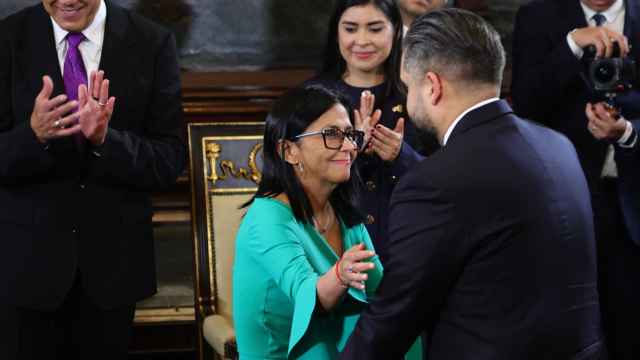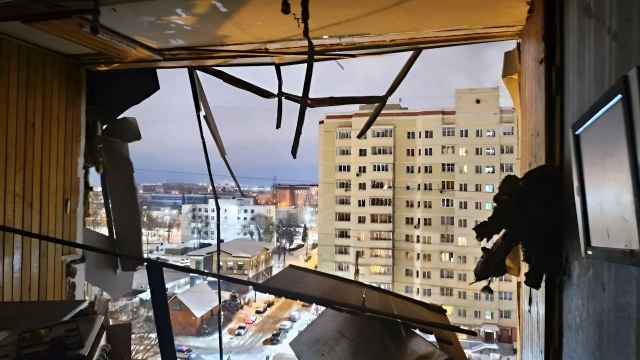The ruble fell below 36 against the dollar on Wednesday, marking a five-year low.
The Russian currency's slide came as tensions escalated in Ukraine, amid reports President Vladimir Putin had ordered drills by his armed forces in western Russia, near the border with Ukraine.
The threat of debt default by Ukraine also rose. Russia holds $3 billion worth of Ukrainian debt issued in December 2013, which could end up in default if certain terms are breached.
As the ruble tumbled to its lowest against the dollar since early 2009, Ukraine's hryvna slid 4 percent to 10 per dollar as political uncertainty mounted, its weakness spilling into the Russian ruble.
"Today's price action in the ruble is about Ukraine" said Rabobank emerging market economist Christian Lawrence. "Quite frankly, nobody knows what is going to happen there."
The market moves come at a time when some investors are already pulling money out of emerging markets and putting it back into better-understood developed economies.
Also acting against the ruble are purchases of foreign currency to replenish Russia's reserve fund by the Finance Ministry that began on Feb. 20. The ministry is buying 3.5 billion rubles ($98 million) of hard currency each day, undermining the Central Bank's efforts to support the currency.
Ukraine remains without a settled government several days after the ouster of President Viktor Yanukovych, raising concerns that the country will fail to tap outside financial support in time to repay debts as its own hard currency reserves dwindle.
The hryvna's latest fall takes year-to-date losses on the once tightly controlled unit to almost 20 percent against the dollar, more than any other major emerging currency in 2014. Bonds are also falling, with the 2017 dollar issue now having erased over more than its Monday gains.
"The whole political picture in Ukraine has become even more blurred than before," said Simon Quijano-Evans, head of emerging markets research at Commerzbank in London.
"As long as there is no clear resolution on who is in charge and as long as there is no unity among global policymakers on resolving the issues, it is impossible to say what happens to asset prices," he added.
Reflecting the fears, debt insurance costs for Ukraine jumped 76 basis points on the 5-year credit default swaps market, Markit said.
"These Ukraine concerns [are weighing] on the ruble in the first place," said Maxim Korovin, fixed income analyst at VTB Capital in Moscow, adding investors may be betting against the ruble as a way to reduce exposure to the region and so indirectly hedge their Ukraine risk.
"If you short the ruble and the ruble is weakening that will offset your loss," he said.
A Message from The Moscow Times:
Dear readers,
We are facing unprecedented challenges. Russia's Prosecutor General's Office has designated The Moscow Times as an "undesirable" organization, criminalizing our work and putting our staff at risk of prosecution. This follows our earlier unjust labeling as a "foreign agent."
These actions are direct attempts to silence independent journalism in Russia. The authorities claim our work "discredits the decisions of the Russian leadership." We see things differently: we strive to provide accurate, unbiased reporting on Russia.
We, the journalists of The Moscow Times, refuse to be silenced. But to continue our work, we need your help.
Your support, no matter how small, makes a world of difference. If you can, please support us monthly starting from just $2. It's quick to set up, and every contribution makes a significant impact.
By supporting The Moscow Times, you're defending open, independent journalism in the face of repression. Thank you for standing with us.
Remind me later.





